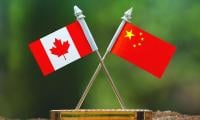Solidarity
A multitude of images of burning rainforest have circulated across social media over the last week with the hashtag #PrayfortheAmazon. A familiar refrain in these tweets and posts has been: if billionaires could dig in their pockets for Notre Dame, why won’t they save the Amazon?
Why won’t the billionaires intervene? Because it is their agribusiness and financial markets which profit from the rampant extractivist model at the heart of this unfolding crisis. Many commentators have failed to identify the system that benefits the burning rainforest, or grasp who bears responsibility for it.
Centuries of extractivism, of putting free markets first, and a tendency to see the Amazon as belonging to all of us (as opposed to the indigenous communities that live there) have all contributed to the situation.
Bolsonaro made the point numerous times in his election campaign that he would open up the Amazon basin to agribusiness, and he has stayed true to his word. Reports this month have demonstrated that Bolsonaro’s government is waging a deliberate war on indigenous communities in Amazonas and across Brazil in order to clear land for farming and big business.
But Bolsonaro is only one part of an unholy alliance between the far right, global finance and corporate power. Credit Suisse, BNP Paribas, Barclays and JPMorgan Chase are among the Anglo-European financial institutions with investments in companies that are destroying the Amazon. The Intercept has also reported that two Brazilian firms owned by Mitch McConnell, a big ally of President Trump, are “significantly responsible for the ongoing destruction of the Amazon rainforest”.
The impact of this is truly terrifying and could be utterly catastrophic. If roughly another fifth of the Amazon rainforest is burned then the phenomenon known as “dieback” may lead to the total collapse of the Amazon ecosystem, with apocalyptic consequences for the global climate.
Yet one fifth of the Amazon was also destroyed in the 50 years before Bolsonaro’s rise to power, and it is crucial that we consider how Anglo-European corporations, global finance institutions, and previous Brazilian governments are implicated in this. We cannot simply abrogate responsibility for this crisis.
Furthermore, Bolsonaro is a figure worthy of denunciation for everything he does, and it is revealing that some politicians, environmental campaigners and celebrity figures have remained silent on Bolsonaro’s attacks on trade unionists, LGBTQ+ groups and feminists, but are outraged when he threatens the so-called “lungs of the earth”.
It is this implication, that the Amazon rainforest is somehow the collective property of everyone, which reveals a startling colonial tendency in responses to climate crisis. In these narratives, indigenous communities are either erased, represented without agency, or as essentialised guardians of the forest. The truth is that Brazil’s Landless Workers Movement, as well as social movements in Peru, Ecuador and across the Amazon Basin, have struggled for decades (if not centuries) to defend their communities. The Amazon is not ours to save with prayers and clicktivism; it is their homeland to defend (with our solidarity) against the global corporations and free trade deals which would open up the Amazon to more risk.
Excerpted from: ‘Amazonian Communities Need Solidarity, Not Saviours’.
Courtesy: Commondreams.org
-
 Prince Harry, Meghan Markle Make Major Change To Strategy To Please Royal Family
Prince Harry, Meghan Markle Make Major Change To Strategy To Please Royal Family -
 Chester Bennington’s Mental Health Story And Lasting Legacy
Chester Bennington’s Mental Health Story And Lasting Legacy -
 John Cusack Gears Up To Give Fans Exciting Surprise On Late-night Television
John Cusack Gears Up To Give Fans Exciting Surprise On Late-night Television -
 Yerin Ha Opens Up About Shocking Diagnosis Post ‘Bridgerton’ Season 4
Yerin Ha Opens Up About Shocking Diagnosis Post ‘Bridgerton’ Season 4 -
 Meghan Markle, Harry Leave King Charles, Prince William Furious With Latest Move
Meghan Markle, Harry Leave King Charles, Prince William Furious With Latest Move -
 NASA Announces New Artemis Moon Mission Aimed At Expanding Astronauts’ Exploration Efforts
NASA Announces New Artemis Moon Mission Aimed At Expanding Astronauts’ Exploration Efforts -
 Everything To Know About Justin Bieber's Facial Paralysis
Everything To Know About Justin Bieber's Facial Paralysis -
 Morgan Stanley Predicts AI To Replace Tasks Not Workers
Morgan Stanley Predicts AI To Replace Tasks Not Workers -
 Anthropic Dario Amodei Calls White House Response ‘retaliatory’ In AI Safety Dispute
Anthropic Dario Amodei Calls White House Response ‘retaliatory’ In AI Safety Dispute -
 Savannah Guthrie Speculations 'sadly' Coming True About Mother Nancy
Savannah Guthrie Speculations 'sadly' Coming True About Mother Nancy -
 Tia Mowry Breaks Silence On Angelina Jolie Asking 'unbelievably' Personal Question: 'Wilder'
Tia Mowry Breaks Silence On Angelina Jolie Asking 'unbelievably' Personal Question: 'Wilder' -
 Trump Administration Warns Of Slow Payouts For Tariff Refunds Amid Intensifying Trade Disputes
Trump Administration Warns Of Slow Payouts For Tariff Refunds Amid Intensifying Trade Disputes -
 Princess Beatrice 'far From Comfortable' After Father Andrew's Arrest
Princess Beatrice 'far From Comfortable' After Father Andrew's Arrest -
 Sarah Ferguson’s Dual Cancer Journey
Sarah Ferguson’s Dual Cancer Journey -
 GTA 6 Security: Rockstar Blocks Leaks Ahead Of Launch
GTA 6 Security: Rockstar Blocks Leaks Ahead Of Launch -
 Demi Moore's New Look At Milan Fashion Week Sparks Serious Concern
Demi Moore's New Look At Milan Fashion Week Sparks Serious Concern



